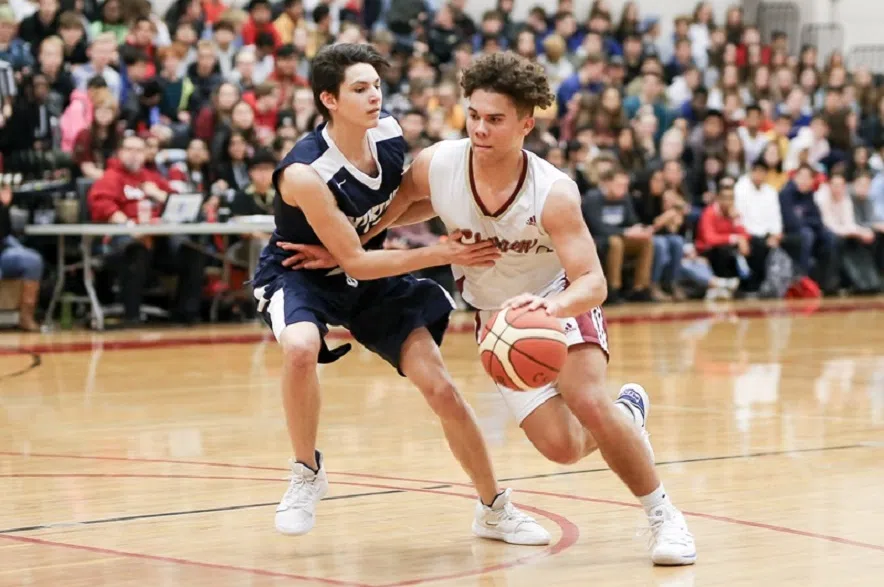Glen Grunwald was at Toronto Raptors coach Nick Nurse’s foundation gala dinner on March 11 when the sports world began unravelling.
Utah Jazz centre Rudy Gobert had just tested positive for COVID-19, knocking over the first in a lengthy string of dominoes that would bring global sports to its knees. The NBA announced that evening it was suspending the season, and the Raptors, who’d played Utah two nights earlier, went into self-isolation.
Grunwald, the CEO of Canada Basketball, began to wonder then about the fate of a season that had held so much promise.
“It’s been like a cascade, right? You heard about the virus in China and you start thinking about the pandemic movies that you’ve seen in the past, and you think ‘that’s not going to happen,’ and then it just keeps rolling downhill and keeps getting bigger and bigger,” Grunwald said Tuesday. “I do remember when I really realized it was having a very major impact was the gala dinner, and you’re following the news about the NBA . . . it’s unfolding right in front of you.
“That’s when it really hit me.”
Like the rest of Canada’s Olympic community, Grunwald woke up Tuesday to news the 2020 Olympics would be pushed back to 2021. The International Olympic Committee’s announcement came two days after Canada announced it wouldn’t go to Tokyo unless the Games were postponed.
Among Canada Basketball’s highlights for 2020 was the opportunity to host a men’s last-chance qualifying tournament in June in Victoria. Coached by Nurse, the Canadian team was expected to feature a who’s-who of NBA players.
“FIBA is fully intent on running it here in Canada in Victoria (next summer),” Grunwald said, adding Victoria’s organizing committee is also on board for the postponed event.
“I think it’s a good outcome of a bad situation,” he said. “There’s obviously a lot of details to be worked out, but I think it’s very positive for our men’s program. And I think hopefully our women will now get a chance to represent their hard-earned Olympic burden in Tokyo. Not the way you want it to happen, but I think it’s probably the best situation, right?”
Canada’s women’s team was enjoying a record year. The women were ranked a best-ever No. 4 in the world, and locked up their Olympic spot with a 30-point rout of Sweden in their final Olympic qualifying in early February in Belgium.
“There was a little bit of talk here and there (about COVID-19) even then, not from our team, but just that was out there, right? Like, ‘oh, what if this continues to progress and it threatens the Olympics?'” said Canadian women’s coach Lisa Thomaidis.
“And then, just being in Ottawa playing for a national championship (with her Saskatchewan Huskies on March 8), home on the Monday and literally by Wednesday, Thursday, everything was then cancelled . . . it’s just been one thing after the next after that.
“It’s been wild, but my goodness, I’m glad they came to the decision sooner rather than later and think just a bit of a sigh of relief for athletes knowing what is going to happen.”
The men’s team has to win its last-chance qualifier to book its first Olympic spot since 2000 in Sydney, but had a groundswell of support from NBA players, starting with Denver Nuggets guard Jamal Murray. Numerous players followed his lead including Shai Gilgeous-Alexander, RJ Barrett, Nickeil Alexander-Walker, Dillon Brooks, Chris Boucher, and Oshae Brissett.
“We were excited about it, I think we just have to defer our excitement now and get ready for 2021,” Grunwald said. “I’m still very optimistic about the women’s team. I’m still very hopeful that the men’s team can qualify. I’m very happy that we’re hosting the Olympic qualifying tournament in Victoria still. “It’s all a positive trend right now.”
Postponing the Games for at least a full year is also good news for NBA players who wanted to compete in both. The suspended NBA season could potentially have overlapped with the Olympics if they’d only been pushed back a couple months.
“I know FIBA want NBA players to be able to participate in the Olympics, and I know the Olympics want the NBA, the best athletes, to be participating as well,” Grunwald said. “So I’m sure they’re going to try and work the schedule around where NBA players will be available. But again, all the details need to be worked out.”
Plenty of details to be ironed out on the women’s side as well. While the Canadians gathered for three qualifying tournaments in September, November and February, what happens now that they have their Tokyo spot locked up?
“This year was really good, even though it was a different qualification process . . . there was a really strong sense of building some team cohesion and chemistry with that schedule,” said Thomaidis, who planned to hold a conference call with her players and staff on Wednesday. “And now looking ahead now that everyone’s already qualified, and there won’t be those qualifiers taking place, I wonder how much we’re going to be able to have our full roster together between now and then. Different challenges for sure.”
It has been an emotional few months for Thomaidis, who lost both parents to cancer — her dad Christos died on Oct. 10, and her mom Sandra on Feb. 16.
She’s appreciating this bit of down time.
“There is definitely a part of me that is ready to chill for a little bit here and process things . . . definitely a part of me that is OK that I get to step back right now and take a little bit of time,” Thomaidis said. “It’s really weird that it’s under these circumstances, but all things considered and putting things in perspective, it’s not such a bad thing for me personally.”
This report by The Canadian Press was first published March 24, 2020.
Lori Ewing, The Canadian Press







